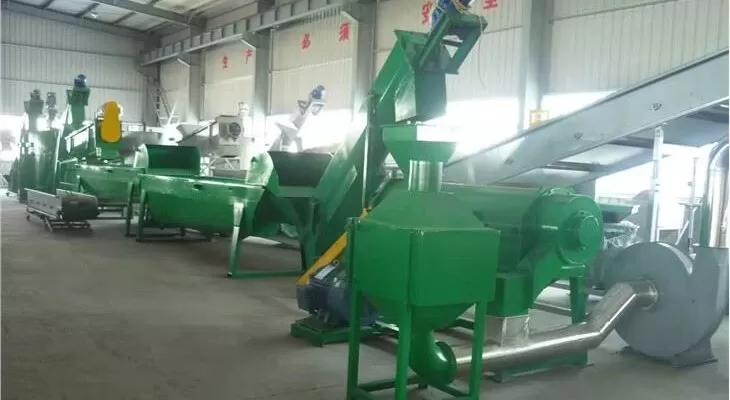Plastic waste is one of the most pressing environmental issues of our time. In Ireland, the problem is no different. The Irish government, businesses, and citizens are all grappling with how to manage and reduce plastic waste. Have you ever wondered how they are tackling this issue and what progress they’ve made?

Ireland has made significant strides in developing its plastic recycling industry. Through innovative policies, public awareness campaigns, and investments in technology, Ireland is on its way to becoming a leader in plastic recycling.
But what exactly are they doing? Let’s dive into the details and explore how Ireland is developing its plastic recycling industry.
What Are Ireland’s Plastic Recycling Policies?
Ireland has implemented a range of policies to tackle plastic waste. The government introduced a plastic bag levy in 2002, which drastically reduced the use of single-use plastic bags. This was one of the first steps in Ireland’s journey towards better plastic management.
More recently, Ireland has set ambitious recycling targets. The government aims to recycle 55% of all plastic packaging by 2030. To achieve this, they have introduced Extended Producer Responsibility (EPR) schemes, which require producers to take responsibility for the entire lifecycle of their products, including post-consumer waste.
How Are Businesses Contributing to Plastic Recycling?
Irish businesses are playing a crucial role in the country’s plastic recycling efforts. Many companies are adopting sustainable practices, such as reducing plastic packaging and switching to biodegradable materials. Some businesses have also invested in recycling facilities to handle their plastic waste.
For example, some grocery stores have introduced plastic-free aisles, offering products without plastic packaging. This initiative not only reduces plastic waste but also raises awareness among consumers about the importance of reducing plastic use.
What Role Do Technology and Innovation Play?
Technology and innovation are key drivers in Ireland’s plastic recycling industry. Advanced sorting and processing technologies have improved the efficiency and quality of plastic recycling. For instance, optical sorting machines can now accurately separate different types of plastics, making recycling more effective.
Moreover, research and development in the field of recycling are ongoing. Irish universities and research institutions are working on new methods to recycle plastics that are currently difficult to process. These innovations are expected to further boost Ireland’s recycling capabilities.
How Is Public Awareness Being Raised?
Public awareness is crucial for the success of recycling programs. In Ireland, various campaigns have been launched to educate the public about the importance of recycling and how to do it correctly. Schools, community groups, and media play a significant role in these efforts.
For instance, the “Green Schools” program educates students about environmental issues, including plastic recycling. This program not only teaches children but also encourages them to bring these lessons home, influencing their families’ recycling habits.
What Challenges Does Ireland Face?
Despite significant progress, Ireland still faces challenges in its plastic recycling efforts. One major issue is contamination of recyclable materials. When non-recyclable items are mixed with recyclables, it can spoil entire batches of recycling, making the process less efficient.
Another challenge is the export of plastic waste. Like many countries, Ireland exports a portion of its plastic waste to other countries for processing. This practice has come under scrutiny due to environmental and ethical concerns. Ireland is working on developing domestic recycling infrastructure to address this issue.
What Are the Future Prospects for Ireland’s Plastic Recycling Industry?
Looking ahead, Ireland has ambitious plans to further develop its plastic recycling industry. The government is committed to increasing recycling rates and reducing plastic waste. Investments in technology, infrastructure, and public education will play a crucial role in achieving these goals.
Moreover, Ireland aims to become a leader in the circular economy, where waste is minimized, and materials are continuously reused. This vision includes creating a sustainable system for managing plastic waste, benefiting both the environment and the economy.
Conclusion
Ireland’s journey in developing its plastic recycling industry is impressive. Through a combination of effective policies, business initiatives, technological advancements, and public awareness, Ireland is making significant progress. While challenges remain, the country’s commitment to reducing plastic waste and increasing recycling rates is clear. As Ireland continues to innovate and invest in recycling, it sets a strong example for other nations to follow.
